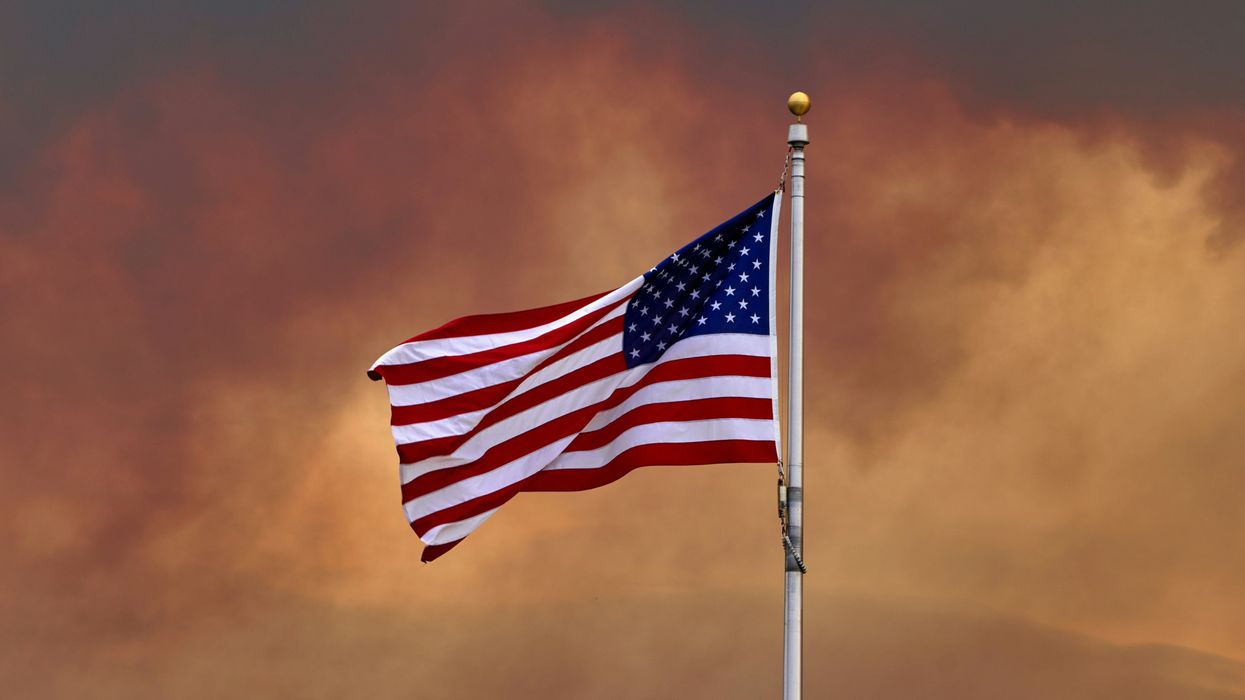The Fulcrum is committed to nurturing the next generation of journalists. To learn about the many NextGen initiatives we are leading, click HERE.
We asked Lluvia Chavez, a Mexican-American bilingual journalist dedicated to amplifying the stories of underrepresented communities and a cohort member with the Fulcrum Fellowship, to share her thoughts on what democracy means to her and her perspective on its current health.
Here’s her insight on the topic.
Democracy promises a lot. It promises power to the people, protection, and accountability for the powerful. It promises fairness, transparency, and dignity. But lately, I’ve been asking myself: Who actually gets to experience democracy that way?
Because what we’re living through is a version of “democracy” that I feel like something else entirely.
In 2024, Donald Trump became the first former U.S. president to be convicted on 34 felony counts in a criminal trial. Yet despite that historic verdict, he faced no jail time, no fines, no probation. In 2025, he returned to office, proof that the rule of law does not apply equally. Meanwhile, thousands of ordinary Americans — disproportionately people of color — sit behind bars for far less. According to the U.S. Sentencing Commission’s 2023 report, over 5,200 individuals were sentenced for nonviolent property or financial offenses (like fraud, theft, and embezzlement) in federal court alone — without any violent element. That stark contrast highlights how democracy can fail when justice is not applied evenly.
Democracy also claims to protect freedom of speech, protest, and the press. But across the country, that freedom is under threat. At Columbia University, graduate student and green card holder Mahmoud Khalil was detained by ICE in March 2025 after participating in pro-Palestine protests. Though a federal judge ordered his release, citing First Amendment violations, the damage was done. Fear rippled through immigrant communities, especially students and scholars who once believed their legal status protected them.
The Trump administration’s Executive Order 14188 escalated that fear. It authorized federal agencies to monitor international students involved in protests, treating dissent not as a constitutional right but as a potential threat. That same administration moved to punish Harvard University by freezing over $2.2 billion in federal funding and threatening its ability to enroll international students, a clear retaliation against academic institutions that refused to silence student voices.
These are not isolated incidents. They are symptoms of a democracy drifting from its principles. And those very principles — fairness, equality, the idea that power rests with the people — are what this country prides itself on, and projects onto the rest of the world. It’s why immigrants from every corner of the globe come here chasing the American dream. As a Latina, I’m frightened by how my community is being treated in times when democracy seems to be fading. When hard-working people live under constant threat, it’s hard to believe those promises were ever meant for us.
I still believe democracy is attainable, but not in the version that has been corrupted by unchecked power and selective enforcement. I believe in a democracy where the law applies to everyone, not just the powerless. As a reporter, I also feel immense responsibility as Journalism plays a huge role in democracy — it demands truth, amplifies voices, and insists on transparency.
To me, democracy means a shared responsibility to protect not only our rights, but also those of others. This is evident in the thousands of protests taking place across the country, many under banners that read “No Kings,” a reminder that no one is above the law. It means creating systems that uphold dignity, inclusion, and truth.
Democracy is ever-changing, and change is only beneficial if it brings real progress. Today, it can feel as though the efforts of those who fought for human rights are being eroded. But that’s also why it matters so much to stay engaged, to exercise our First Amendment rights — to keep pushing so that each shift brings us closer to the fairness and dignity democracy promised in the first place.




















